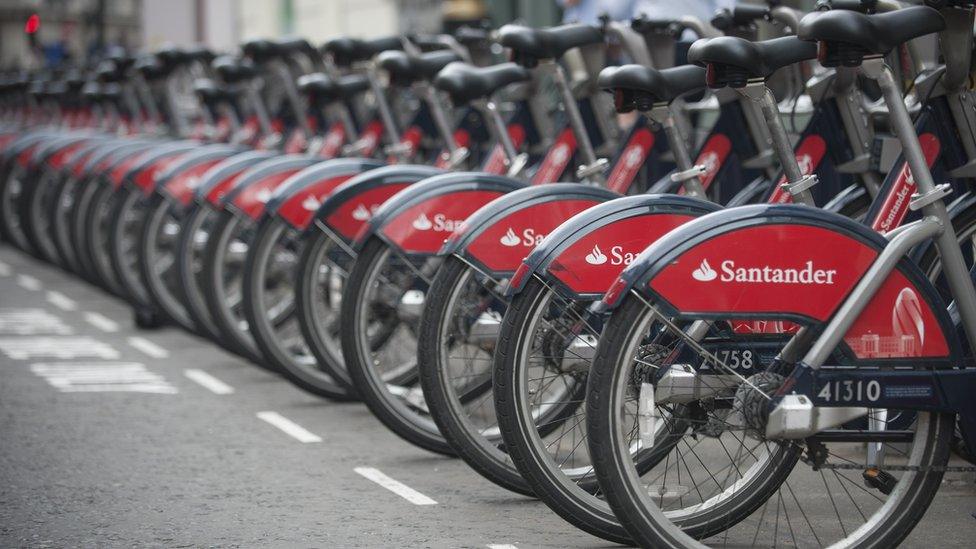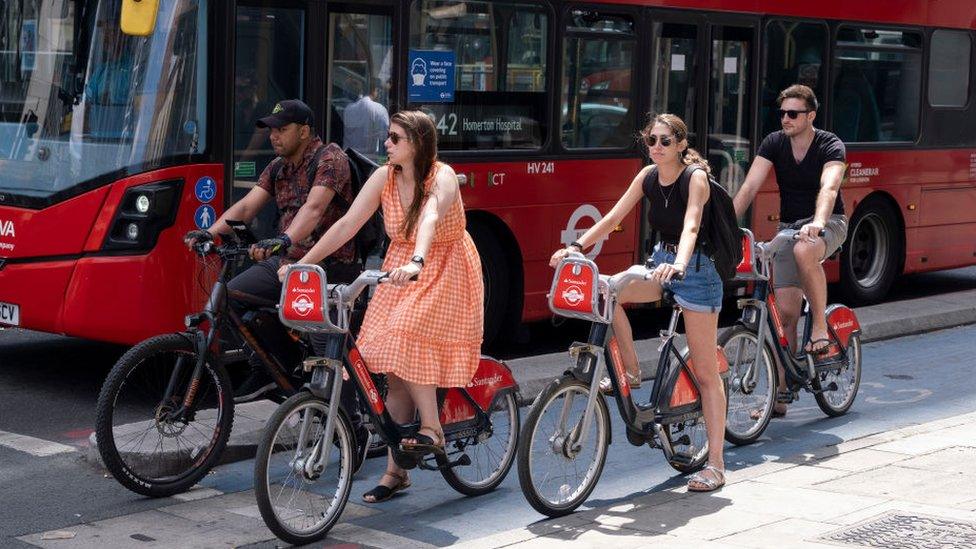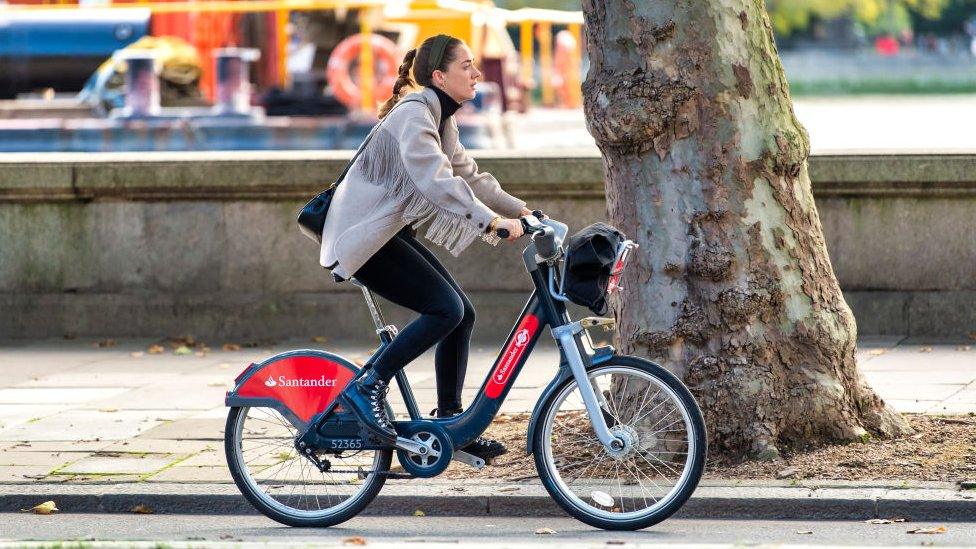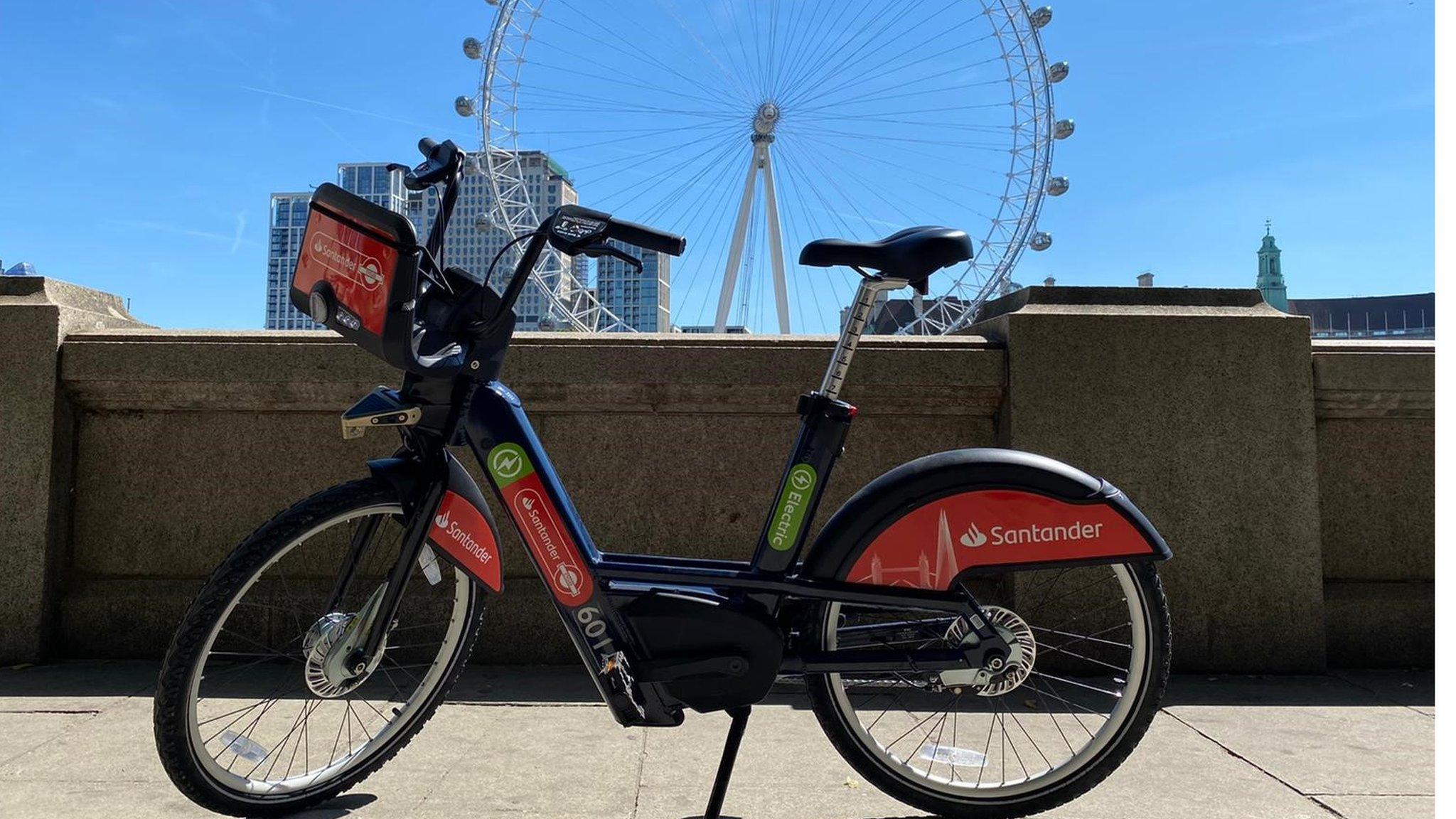Santander Cycles: Number of hires at lowest level for 10 years
- Published

Bike hires declined by a third in the first seven months of 2023
The number of journeys made using Transport for London's (TfL) cycle hire scheme this year are at their lowest level in a decade, figures reveal.
About 7.3m journeys were made from January to July 2022, while 4.9m hires were recorded in the equivalent period this year - a drop of 33%.
It is the lowest number since 2013, when there were fewer bikes and docking stations available.
TfL has blamed recent bad weather as a potential cause for the drop.
In 2022, usage of the scheme reached record levels.
The decline appears to have started in September 2022, when TfL increased the cost of an annual subscription from £90 to £120.
The pricing for single journeys was also changed to become a flat rate of £1.65 per half hour of use. Previously it was £2 for a whole day of access to the bikes, as long as each journey lasted less than 30 minutes.

The TfL cycling scheme has seen increased competition from private firms
David Eddington, TfL's head of cycle hire, said a number of factors were to blame though he picked out the "consistent bad weather recently" as having had "a significant impact on casual hires".
He added TfL would aim to improve cycling in the city and possibly expand the rollout of the e-bike hire scheme.
'Significant price change'
A number of people who have recently stopped using Santander e-bikes have said cost is the leading factor in their decision.
Daniel Berube told BBC London he stopped regularly using the scheme when "the significant pricing change came into effect last year".
He added: "The expense hit a tipping point and outweighed the convenience the scheme offered".
The bikes were first introduced onto London's streets in 2010, during Boris Johnson's time as mayor though plans for the scheme began under his Labour predecessor, Ken Livingstone.
In recent years, the bikes have faced stiff competition from a number of dockless e-bike companies, including Lime, Dott, TIER and Forest, formerly known as HumanForest.
In June, TfL said it would "be exploring the possibility of adding concessionary fares" to its scheme "to support the most disadvantaged Londoners", including job seekers and council house tenants.
Under its Cycling Action Plan, external - which covers cycling in general across the capital - TfL wants to grow the number of daily bike journeys made in London to 1.6 million by 2030, up from 1.2 million in 2022.

Follow BBC London on Facebook, external, Twitter , externaland Instagram, external. Send your story ideas to hellobbclondon@bbc.co.uk, external
Related topics
- Published12 January 2022

- Published27 February 2023

- Published6 October 2022
